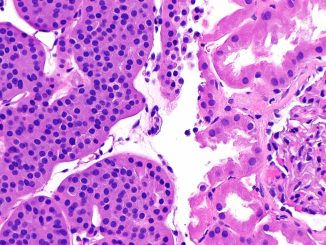
Intermittent fasting is part of the popular diet nowadays, thanks to its great potential for weight loss, over a relatively short period of time, but also for the detoxification and rejuvenation of the body.
The benefits of intermittent fasting
In addition to eliminating extra kilos, intermittent fasting is considered an effective way of detoxifying the body. Deprivation of food over a longer period causes a decrease in glycemic index, triglycerides and insulin production, and apparently stimulates the production of somatotropin (the “growth hormone”), which, among other things, leads to the production of new nerve cells.
Benefits also include increasing the energy level and regeneration capacity of the body (through food deprivation, the body enters the state of autophagy, consuming deficient cells to create new cells – a process that is part of the self-regulating function of the body). Regarding the weight composition, intermittent fasting helps to increase the metabolic rate by 3.6% -14%, thus accelerating the process of burning calories. Also, this type of diet loses less muscle mass than a standard weight loss regime, which involves constant calorie restriction.
Tricks to get used to intermittent fasting easier
Any diet is difficult to adopt at first, and intermittent fasting can be even more difficult for some people because it is difficult for the body to switch from a normal eating routine, to long breaks in between meals. There are, however, a few habits you can adopt from the beginning of the diet, to get used to this new eating routine more easily.
Begin with the 16:8 intermittent fasting diet
The easiest transition to intermittent fasting is usually with the 16:8 diet, because you can easily set up your meals so that the 16-hour break encompasses the night’s sleep. Once the rhythm has been created, it will be easier for you to make the transition to the new diet.
Opt for healthy, nutrient rich foods
A complete meal should contain just about every nutrient class: fiber, protein and carbohydrates. Regarding intermittent fasting, quality matters more than quantity, otherwise the results will be delayed (the effort not to eat a long period of time will be canceled by an over-caloric meal). Therefore, focus on foods such as whole grains, plenty of vegetables and fruits, eggs, low-fat meat, black beans, brown rice.
Be constantly active
As we’ve already said, it is difficult for the body to accept a new routine, especially a drastic one, after years of conditioning with a different eating pattern. Therefore, our bodies will do everything in their power to reject this new routine, at least in the first few days. Therefore, it is important to pay attention to the mental component, which intervenes with the change of your diet, and to keep your body and mind occupied. Thus, you will not leave room for any of the opposing factors emitted by the body, such as the unusual appetite for sweets, impatience, nervousness, boredom that can lead to the false need to eat something.



Leave a Reply